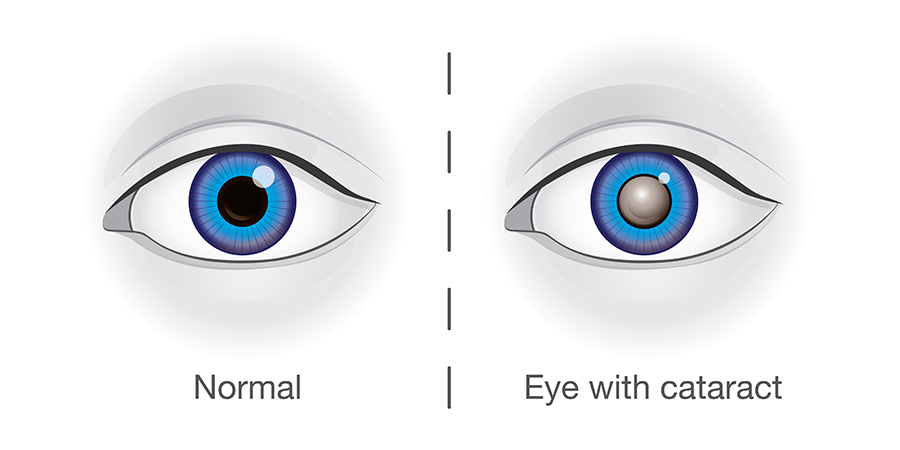- Empty cart.
- Continue Shopping
How to Recognize Early Signs of Cataracts

Cataracts, a common age-related eye condition, can gradually impair vision if left untreated. Recognizing the early signs of cataracts is crucial for seeking timely medical intervention. We will outline the key indicators of cataracts and provide insights on when to seek professional eye care.
Understanding Cataracts
Cataracts develop when the lens of the eye, which is normally clear, becomes cloudy or opaque. This cloudiness obstructs light from passing through, leading to vision impairment. While aging is the primary factor, other factors like diabetes, smoking, and certain medications can also contribute to cataract formation.
Early Signs of Cataracts
1. Blurry or Cloudy Vision
One of the earliest signs of cataracts is a gradual decline in the clarity of your vision. You may notice that objects appear hazy or less distinct, particularly in low-light conditions.
2. Difficulty with Night Vision
Cataracts can cause increased sensitivity to glare, particularly from oncoming headlights while driving at night. This can lead to difficulties in judging distances and navigating in low-light environments.
3. Faded or Yellowed Colors
As cataracts progress, you may observe a change in the way you perceive colors. They may appear faded, dull, or tinged with a yellowish hue. This can affect your ability to distinguish between certain shades.
4. Frequent Changes in Glasses Prescription
If you find that you need to update your eyeglass prescription more frequently than usual, it could be an indication of cataracts. Changes in prescription may not provide the improvement in vision that you expect.
5. Halos Around Lights
Cataracts can cause halos to appear around light sources, making it challenging to see clearly, especially at night. This can be particularly concerning when driving or engaging in activities that require precise vision.
When to Seek Professional Care
If you notice any of the above signs or experience a significant change in your vision, it is imperative to consult an eye care professional promptly. Early detection allows for timely intervention and appropriate treatment options.
Prevention and Management
While cataracts are primarily age-related, adopting certain lifestyle practices may help delay their onset:
1. Protect Your Eyes from UV Radiation
Wearing sunglasses that provide adequate UV protection can safeguard your eyes from the harmful effects of ultraviolet rays.
2. Maintain a Balanced Diet
Eating a diet rich in antioxidants, such as fruits and vegetables, may help reduce the risk of cataracts. Vitamins C and E, found in abundance in these foods, play a crucial role in maintaining eye health.
3. Avoid Smoking and Limit Alcohol Consumption
Smoking and excessive alcohol consumption have been linked to an increased risk of cataracts. Quitting smoking and moderating alcohol intake can help protect your vision.
4. Regular Eye Exams
Undergoing comprehensive eye exams at regular intervals is essential for detecting and monitoring the progression of cataracts. Early intervention can significantly improve treatment outcomes.
Conclusion: Taking Proactive Steps for Eye Health
Recognizing the early signs of cataracts empowers you to take prompt action and seek the necessary medical attention. By adopting a proactive approach to eye health through regular check-ups and lifestyle modifications, you can effectively manage and, in some cases, delay the progression of cataracts. Remember, your vision is a precious gift, and safeguarding it through timely care is of utmost importance.








